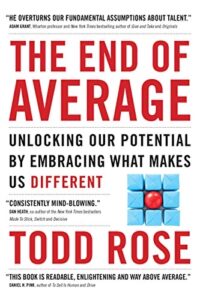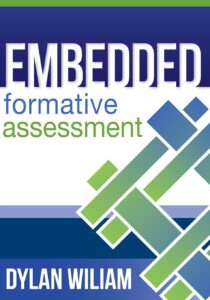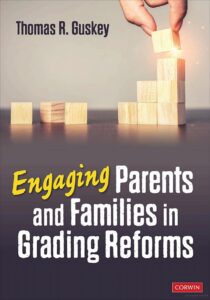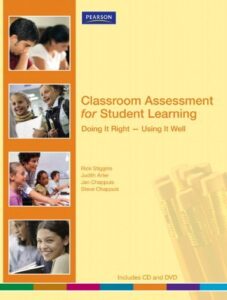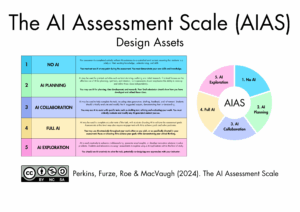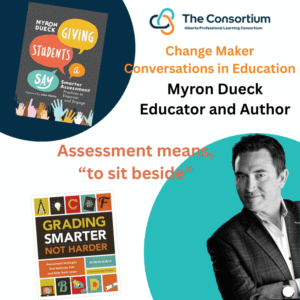
Canadian educator, author and presenter Myron Dueck joins our podcast for a conversation with Dr. Rick Gilson exploring present and future possibilities and practices for assessment, how we might better support and engage students and families in the process and some interesting directions involving artificial intelligence.
As always we start with the question: What are you reading or have most recently read you’d like to share?
Myron offers:
Zero: The Biography of a Dangerous Idea
Social Studies: Dead Wake: The Last Crossing of the Lusitania
Noise: A Flaw in Human Judgment
and as a bonus, shares a story from his experience reading “Valley of the Birdtail An Indian Reserve, A White Town, and The Road to Reconciliation” by Andrew Stobo Sniderman and Douglas Sanderson.
Myron’s assessment leadership journey started with a professional learning opportunity to listen to Rick Stiggins, a prolific author and co-author of dozens of books and articles related to educational assessment. Myron shares that Stiggins asked the audience to reflect on three questions as they relates to their students:
- Would they know where they are going with the learning – do they have a target clearly in mind?
- Would they be able to explain where they are now in their learning as it relates to that target?
- IF they could answer those first two questions, would they be able to answer the final question; How do I close the gap between where I am and where I want to be in my learning/future?
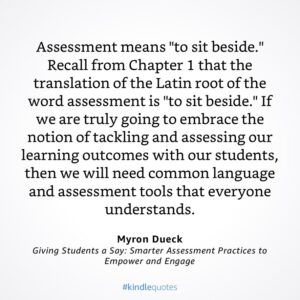
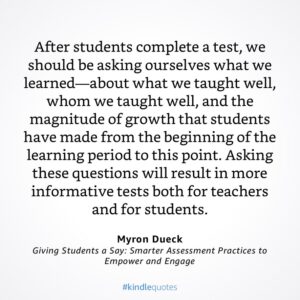
Other resources and books discussed during this episode include a conversation about the top 10 job skills as published annually by the World Economic Forum and how that might impact our assessment and instruction practices particularly noting #5 on the list had never been in the top 10 while numbers 1,3,7, and 9 and all moved up from previous years:
The 2025 list
1. Analytical thinking and innovation
2. Active learning and learning strategies
3. Complex problem-solving
4. Critical thinking and analysis
5. Resilience, stress tolerance, and flexibility (first time in the top 10)
6. Creativity, originality, and initiative
7. Leadership and social influence
8. Reasoning, problem-solving and ideation
9. Emotional Intelligence
10. Technology design and programming
Naturally AI (Artificial Intelligence) ChatGPT, Claude, etc. and education/assessment entered the conversation and Myron referred to the work of the AI Assessment Scale – exploring when and how AI might be appropriately used. You can learn more about this work that is shared under the creative commons license – acknowledging the work of Perkins, Furze, Roe and MacVaugh, don’t charge anyone when you share this work and share and share alike any work you do related to this work.
I would invite those who have not previously viewed the TedxTalk of author and Harvard professor Todd Rose and his conversation around the “Myth of Average” .
Books suggested for further reading in our conversation
In addition to the books below we touched on:
Myron’s works:
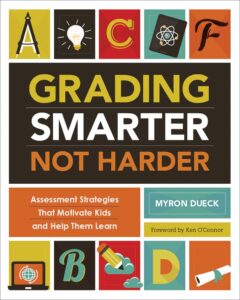
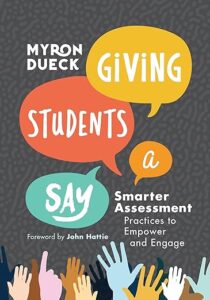
Social Studies teachers we talked about: A History of Canada in Ten Maps: Epic Stories of Charting a Mysterious Land by Adam Shoalts.
AND other titles referenced:
